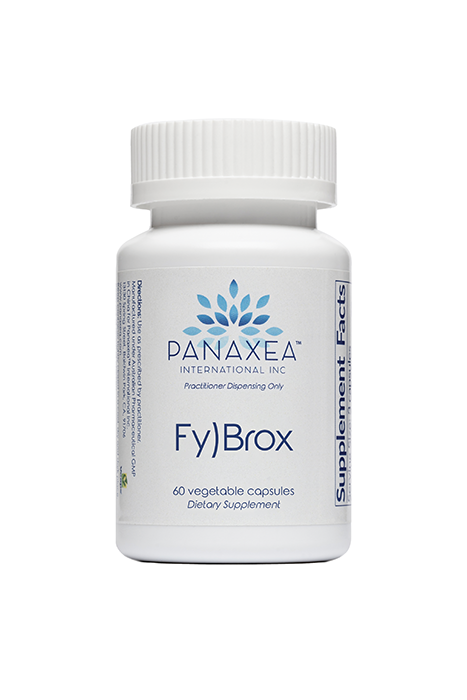
FY)BROX
$40.80
PAN111
Supplement FactsServing Size: 1 capsules Servings Per Container: 60 |
||
|
Amount Per Serving |
% Daily Value |
|
| Quercetin | 40 mg | † |
| Scutellaria Baicalensis (methanol extraction, contains Baicalein 85%) | 30 mg | † |
| Scutellaria Baicalensis (methanol extraction, contains Baicalin 85%) | 30 mg | † |
| Scutellaria Baicalensis (methanol extraction) | 100 mg | † |
| Rhuem Rhabarbarum (contains Emodin 95%) | 20 mg | † |
| Rheum Palmatum (methanol extraction) | 50 mg | † |
| Salvia Miltiorrhiza (contains Salvianolic Acid B 5% | 30 mg | † |
| Salvia Miliorrhiza (methanol extraction) | 100 mg | † |
| Artemisia Annua (Contains Oridinin 0.5%) | 30 mg | † |
| Rabdosia Rubescens (contains Oridoin 0.5%) | 20 mg | † |
| Vaccinicum sect. Cyanoccus (contains Pterostilbene 98%) | 30mg | † |
| Panax Ginseng (contains Ginsenoside Rg1 20%) | 20 mg | † |
| † Daily Value not established. | ||
Other Ingredients: Vegetable cellulose (hypromellose); Vegetable Stearic Acid; Microcrystalline Cellulose and Vegetable Magnesium Stearate.
Does Not Contain: Wheat, gluten, soy, milk, eggs, fish, crustacean shellfish, tree nuts, peanuts
Supplement FactsServing Size: 1 capsules Servings Per Container: 60 |
||
|
Amount Per Serving |
% Daily Value |
|
| Quercetin | 40 mg | † |
| Scutellaria Baicalensis (methanol extraction, contains Baicalein 85%) | 30 mg | † |
| Scutellaria Baicalensis (methanol extraction, contains Baicalin 85%) | 30 mg | † |
| Scutellaria Baicalensis (methanol extraction) | 100 mg | † |
| Rhuem Rhabarbarum (contains Emodin 95%) | 20 mg | † |
| Rheum Palmatum (methanol extraction) | 50 mg | † |
| Salvia Miltiorrhiza (contains Salvianolic Acid B 5% | 30 mg | † |
| Salvia Miliorrhiza (methanol extraction) | 100 mg | † |
| Artemisia Annua (Contains Oridinin 0.5%) | 30 mg | † |
| Rabdosia Rubescens (contains Oridoin 0.5%) | 20 mg | † |
| Vaccinicum sect. Cyanoccus (contains Pterostilbene 98%) | 30mg | † |
| Panax Ginseng (contains Ginsenoside Rg1 20%) | 20 mg | † |
| † Daily Value not established. | ||
Other Ingredients: Vegetable cellulose (hypromellose); Vegetable Stearic Acid; Microcrystalline Cellulose and Vegetable Magnesium Stearate.
Does Not Contain: Wheat, gluten, soy, milk, eggs, fish, crustacean shellfish, tree nuts, peanuts
